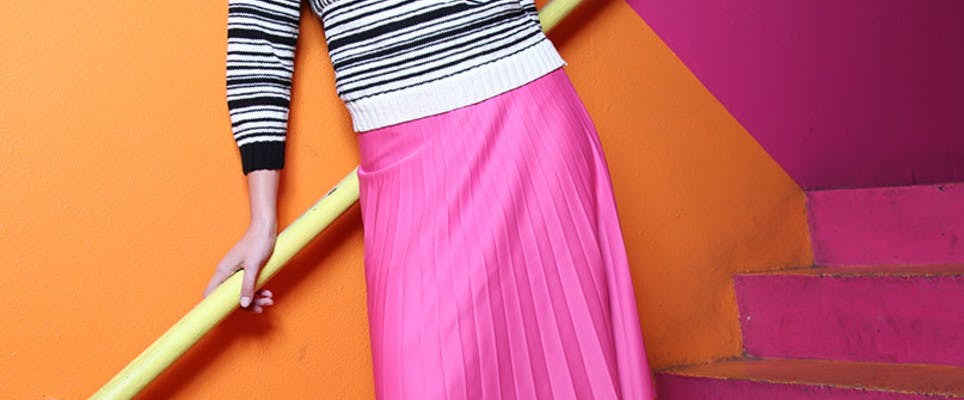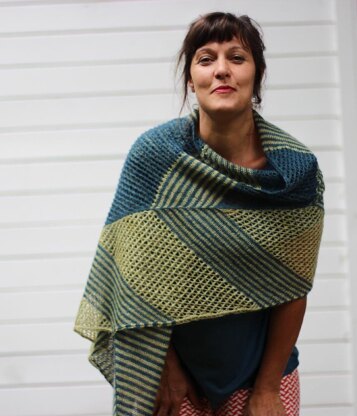How to knit vertical stripes
Published on 19 December 2018 By Elizabeth Bagwell 2 min read
If you’ve tried horizontal stripes and are ready for a new challenge, give vertical stripes a go! Elizabeth Bagwell gets you started.
Stripes are a great way to use up odds and ends, particularly of favourite yarns. Intarsia vertical stripes are ideal for varigated yarns, as they create blocks and pools of colour, showing off the yarn with little effort.
Intarsia stripes
To knit vertical stripes in intarsia, you’ll need a separate ball of yarn for each stripe. As an example, a red – yellow – red – yellow – red scarf would use 5 balls of yarn, 3 red and 2 yellow. You can use both ends of the same ball, but this is harder to untangle if you get a muddle mid-project.
Pro tip: use kitchen scales to weigh a ball of yarn and divide it into equal parts.
As you work across each row, simply pick up the new colour as you come to it and drop the old one. Twist the two threads together when you change colours, as shown in the video.
Pro tip: start your stripes at cast on for a professional look. Simply cast on the appropriate number of stitches for each stripe in each colour using your normal cast on method. The blocks will be securely joined as you knit.
Stranded stripes
If you’re knitting narrow stripes, you may prefer to use a stranded colourwork technique (such as Fair Isle) to create the stripes. You’ll only need one ball per colour. Stranded colourwork has a definite wrong side, but unlike intarsia can be worked in the round. It also uses more yarn. On the other hand (or foot), those extra floats do make mittens and socks warmer.
Pro tip: If the transitions seem loose, twist the strands together when you change colour as for intarsia.
Fake vertical stripes
For some items, such as scarves, you can fake a vertical stripe by knitting side to side instead of top to bottom. This can be quicker and easier, and is a great way to make a scrappy scarf.


